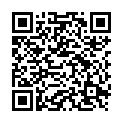|
|
|
| Module code: E921 |
|
|
1V+1P (2 hours per week) |
|
3 |
| Semester: 9 |
| Mandatory course: no |
Language of instruction:
German |
Assessment:
Oral examination, project work
[updated 12.03.2010]
|
E921 (P211-0256) Electrical Engineering, Master, ASPO 01.10.2005
, semester 9, optional course
|
30 class hours (= 22.5 clock hours) over a 15-week period.
The total student study time is 90 hours (equivalent to 3 ECTS credits).
There are therefore 67.5 hours available for class preparation and follow-up work and exam preparation.
|
Recommended prerequisites (modules):
None.
|
Recommended as prerequisite for:
|
Module coordinator:
Prof. Dr. Benedikt Faupel |
Lecturer:
Prof. Dr. Benedikt Faupel
[updated 12.03.2010]
|
Learning outcomes:
In this module, students will be taught the basics of process control technology. They will also learn to solve process control problems and analyse typical applications. As a result students will be able to understand and independently solve the typical problems that arise when implementing process control systems. Students will acquire a structured understanding of process control functionalities, operational requirements, data acquisition and analysis systems and visualization tools, and will be able to develop solutions to specific process control problems. This course expands the studentsí expertise in the area of automation engineering and enables them to adapt quickly to PCS implementation projects.
[updated 12.03.2010]
|
Module content:
1.Introduction to process control technology
2.Overview of process control systems
3.Criteria for selecting process control systems
4.Organization of projects for realizing process control systems (tender
specifications, detailed proposals, selecting contractors, project planning,
commissioning, acceptance testing and procedures, documentation)
5.Process analysis (batch processes, continuous processes)
6.Process representation aids (P&IDs, flow diagrams, sequence diagrams,
measurement point layout diagram)
7.System architectures
8.Operating concepts and operating philosophy
9.Data acquisition and archiving
10.Standards, regulations and guidelines
11.Creating applications / lab projects
[updated 12.03.2010]
|
Teaching methods/Media:
Lecture notes, overhead transparencies, video projector, PC, CD
[updated 12.03.2010]
|
Recommended or required reading:
At the beginning of the course, students will be issued with a CD containing all the teaching material used in this module. The CD also contains a complete and regularly updated list of recommended reading materials.
[updated 12.03.2010]
|


